Register for free and continue reading
Join our growing army of changemakers and get unlimited access to our premium content
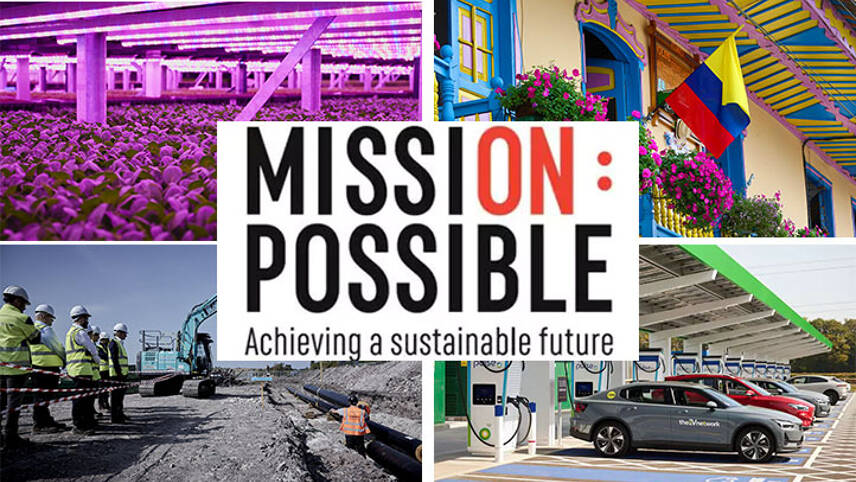
Published every week, this series charts how businesses and sustainability professionals are working to achieve their ‘Mission Possible’ across the campaign’s five key pillars – energy, resources, infrastructure, mobility and business leadership.
Across the UK and across the world, leading businesses, cities, states and regions are turning environmental ambitions into action. Here, we round up five positive sustainability stories from this week.
ENERGY: Colombia joins Beyond Oil and Gas Alliance
At COP26 in Glasgow in 2021, Denmark and Costa Rica jointly launched a new alliance uniting nations in setting an end date for new oil and gas licencing, while also setting out plans to phase out existing capacity.
A total of 11 nations signed up to the Beyond Oil and Gas Alliance initially and, since then, countries with a higher fossil fuel production footprint have been encouraged to join them.
Colombia, the third largest oil producer in Latin America, recently joined the Alliance. It is initially supporting the declaration and will, in the near future, set out its own targets and timelines.
Around one-third of Colombia’s exports are crude oil. This means significant planning will need to happen to grow other, more sustainable industries to secure the country’s economic development in the future.
Colombia’s minister for mines and energy, Omar Camacho, said the country will “respond to the justice element of our energy transition, both for communities and industry”. He described the energy transition as an economic transition by nature.
RESOURCES: Asda becomes first UK supermarket to stock vertically-farmed salad
Food production accounts for 70-80% of global annual freshwater production and food systems are also major drivers of nature loss and waste production globally. Moreover, the value chains of some foods are acutely vulnerable to climate shocks. The sector must adapt and reduce its environmental footprint simultaneously.
Vertical farming presents an eye-catching and much-supported solution. By producing plants indoors, often without the use of soil, the use of water, fertilizer and pesticides can be minimized.
Asda this week launched the UK’s first range of vertically grown bagged salad with three products – mixed salad, rocket and cress. The plants are grown in a facility in Gloucestershire powered using 100% renewable electricity.
Water use in the supply chain is expected to be 90% lower due to the approach. Asda is also foreseeing potential benefits in terms of better availability and more consistent quality, as the salad can grow year-round.
MOBILITY: Huge EV charging ‘Gigahub’ opens at NEC Birmingham
The UN this week stated that electrifying vehicles presents the biggest single opportunity for the low-carbon transition in transport. As electric vehicle (EV) ranges improve, range anxiety for British drivers now stems not from vehicle performance in and of itself, but predominantly from the fact that EV uptake is outpacing charging infrastructure installations.
Feeding into a national commitment to quadruple the number of public rapid chargers between 2020 and 2025, the NEC Birmingham has this week opened a new EV charging ‘Gigahub’ capable of supporting up to 180 vehicles at one time. The £8m project marks the largest investment into a single EV charging location in the UK’s history.
Aside from the NEC, the ‘Gigahub’ is being supported by bp pulse and The EV Network. You can read more details in edie’s full story here.
bp pulse UK’s vice-president Akira Kirton said the project is “nationally significant” as it is so large and is “at the heart of the UK’s road network”.
Kirton added: “We plan to roll out hundreds of hubs this decade in places EV drivers needs them – urban areas, on trunk roads and motorways and at destinations such as restaurants, retail parks and hotels.”
THE BUILT ENVIRONMENT: New homes in former coal community to be served with heat pumps
From 2025, the Future Homes Standard will compel all housebuilders in the UK to reduce operational emissions by at least 75%. Some developers are getting ahead of the curve and piloting low-carbon homes on a voluntary basis.
One of them is Shawfair LLP, which is installing new homes in the north of the Midlothian Council area as part of a regeneration programme for the former coal mining community. The homes have been fitted with heat pumps that will be served by a district heating network.
The initial phase of the network, which will serve some 3,000 buildings, will supply energy from the local energy-from-waste (EfW) plant from next summer. As the heat network expands, there are plans to use geothermal energy, tapped from water inside the disused coal mine. Midlothian Energy, Vallenfall Heat UK and Scotland’s Coal Authority are collaborating on research and development for this phase of the project. There are hopes to eventually serve more than 30,000 buildings.
Vattenfall Heat UK’s managing director Jenny Curtis said: “Using waste heat from sources like EfW plants and mine workings is a no-brainer. The heat is already there, all we need is the urgent deployment of low-carbon heating infrastructure to capture it and supply it to local residents and businesses.
“We are so excited to build on Midlothian’s proud heritage and make the shift to create a low-carbon, clean energy network for the local community, inspiring the next generation into low-carbon, local jobs.”
SUSTAINABILITY LEADERSHIP: Pan-African partnership launched to unlock finance for green economy
The edie team would be remiss not to include the first ever Africa Climate Summit in this edition of our weekly roundup. The summit, in Nairobi, included two days of talks between policy and business leaders alongside finance, energy and agriculture investments.
It culminated in a new declaration with significant commitments to scale clean energy capacity and unlock green finance. Read our summary of the announcements here. This comes ahead of the UN’s next annual climate summit in Dubai this November/December, where African nations are keen to make their voices heard.
Beyond the declaration, several big green initiatives were launched on the sidelines, one of them being the Pan-African Fund Managers’ Association. This new trade association brings together fund managers across the continent in a joint effort to build and strengthen markets for green finance – particularly in Sub-Saharan Africa.
The Association will also play host to localized research topics and resource-sharing facilities, providing guidance to the financial sector and to policymakers.
The UK is supporting the initiative through its aid arm. Five members from Kenya, Ghana, Uganda and Botswana are the other form the core co-founders.
The Pension Fund Operators Association of Nigeria’s chief ececutive Oguche Agudah said: “I’ve always believed that the solutions to Africa’s challenges lie within us. We need to come together, commit to collaborate, and speak with one voice. The managers of capital on the continent have a unique opportunity to individually and collectively determine to a large extent the trajectory of the continent.”

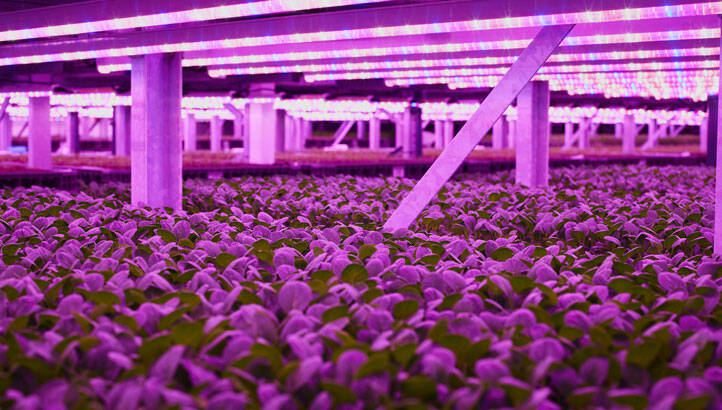
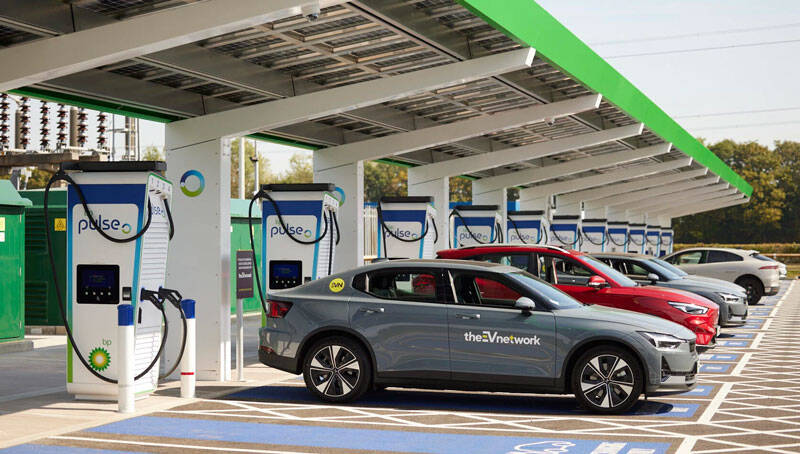
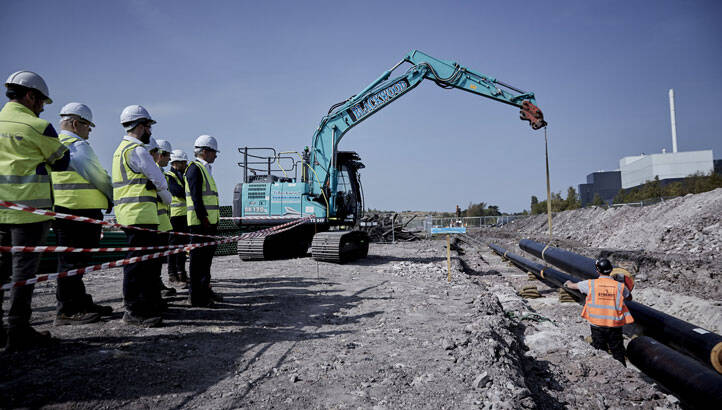
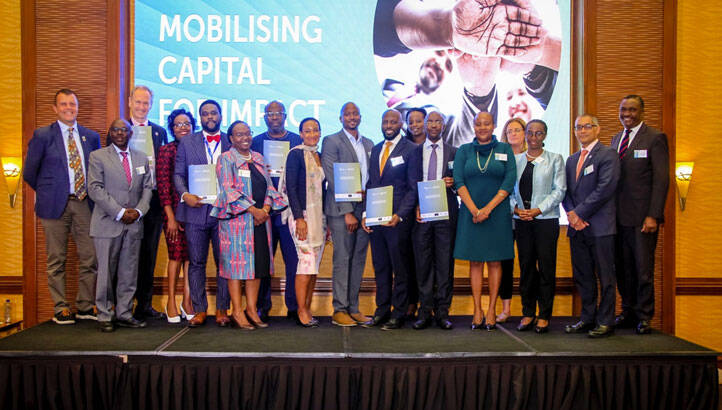


Please login or Register to leave a comment.